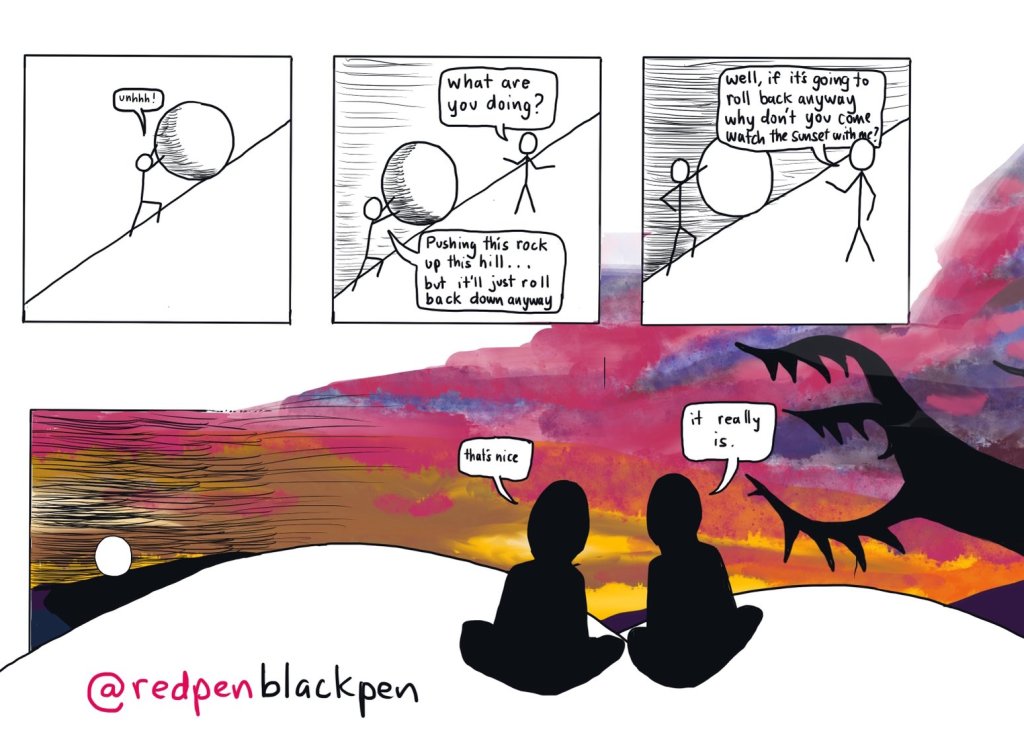I’m still laid up with COVID, and so today I’m missing out on a pretty great event. The London Healthcare Science Collaborative is running an event on the power of celebration (led by Betty Adamou) and women in leadership (led by Claire Walker and Ant De Souza). Whilst I’ve not been able to attend, it has caused me to reflect on the topic and some of the different thoughts and experiences I’ve had linked to opportunities for celebration.
I’ve gone through periods of my career where I’ve definitely not felt like I’ve been allowed to celebrate my successes. I’ve also gone through periods where the barrier to celebration has definitely been me rather than anyone else. Some days, I feel like I’m not allowed to even discuss or mention successes as it will be seen as ungracious or egotistical. In contrast, there have definitely been times, and other situations, where I’ve felt not only empowered to celebrate but that others fully engaged and amplified those celebrations. I’ve been thinking, therefore, why celebration is important and what factors can impact whether we choose to undertake it or not.
Marking your progress
One of the first reasons I think celebration is important and powerful is that it can be used to mark big transitions in life, whether work related or not. The challenge comes in deciding whether the event is ‘sufficient’ and worthy of celebration. It can be easy, at least work wise, to be so focused on an end goal or big picture that nothing is considered to be worthy of celebration along the way. The problem with this is that there is always another step, another target, and so if celebration is not prioritised, it may just never happen. My plea on this one is that we all support each other to celebrate the little things as well as the big things. Sometimes in life, merely getting out of bed is worth a celebratory cup of tea. At least that’s true right now in my COVID world.

Celebrating the journey, not just the destination
But why should celebration be prioritised anyway? One of the key reasons is that it is easy to forget how far you’ve come and to not sufficiently recognise your true progress if individual moments are not recognised. Ensuring that you take the time to celebrate is actually a key part of you recognising your progress and investing in some self care.
Recognising individual stages of progress can also help with the big stages. Sometimes, completing a task, such as writing a PhD thesis, can just seem unattainable. Breaking down the massive task into sections that feel more achievable and allowing yourself to recognise that progress can, mean the entire task feels more managble. It can also help maintain momentum and positive attitude during tasks that are particularly challenging or where it can be easy to become bogged down. After all, most of the learning, and therefore the reason to celebrate, occurs as part of the journey rather than just at the destination.

Owning your progress
We often talk about owning our failures and the learning that results from them. We don’t talk so much about owning our successes. Now, I suspect that some of this is down to imposter syndrome, and the stories we tell ourselves that our successes are down to luck and is ephemeral, whereas our failures are somehow much more real rooted in truth.
The thing is, if we are going to ‘own it’ we need to own ALL of it, the good and the bad. Your progress is yours alone, you are responsible for the things that don’t go well, but the flip side of that is that you also get to claim responsibility for the times when they do. Own it, celebrate it, for once let taking responsibility not be a burden but an act of celebration and joy. Otherwise, you may find that there are plenty of people out there who may take ownership of the good on your behalf.

Enjoy the moment
The other thing about taking ownership is that you should use it to buy you time to reflect and enjoy the moment. Trust me, if you rush through it, always onto the next thing, you’ll reach your destination, only to be aware that the journey has been a blur, and wishing you’d savoured it more. I was in such a rush to ‘get things done’ that I never stopped after one thing before leaping head first into another. In hindsight, that meant it took me longer to learn key lessons. It took me longer to see where I sat within the big picture. It meant I missed out on sharing my successes with those who had contributed or given up a lot to enable them to happen.
Celebrations are not just about you. They are an opportunity for you to give back and acknowledge the input and impact of others. By choosing not to celebrate, we also steal an opportunity away that could be used to thank and recognise colleagues, friends, and family, without whom none of this stuff would happen.

Extrinsic vs intrinsic recognition of success
One of the reasons I’ve written about owning my success is because this is a real work in progress area for me. Success and reasons to celebrate come in all shapes and sizes. I have gotten into the habit of needing external validation, prizes and the like, in order to measure how well I’m doing. These are lovely, but there are some problems with using this as a yardstick. Firstly, how many prizes and awards can you realistically actually win across your career, and are you suddenly worthless when they become unavailable? The other issue is that if we need others to tell us our value, rather than being able to see it in ourselves, you are are constantly in a vulnerable position, especially with people who would use that requirement against you. It is a necessary step in growth to be able to see that we have intrinsic value and to celebrate that, rather than relying on others to see our worth.

Integrate all the versions of yourself
One of the other big challenges I wrestle with is whether it is OK to be seen to celebrate. Is it boastful? Is it narcissistic? Does it end in arrogance? Here is where I have landed in my thinking. It is not a bad thing to share and celebrate your successes, as long as you also share and discuss the learning from your failures. Those people who only shout about the triumphs are within their rights to do so, but I think those shouts are much more meaningful if you’ve also journeyed with them through the failures it took to get to that success.
The other thing I’ve decided is that it is important to celebrate throughout all the aspects of who I am. I am a scientist, IPC professional, and academic, but I am also a wife, a daughter, an aspiring creative, and sister. Therefore, I want to show the depth of all of that when I celebrate and acknowledge the roles and importance of people across those aspects when the good things happen. It takes a village after all.

Understand the power of being seen
Having struggled with the whole celebration thing for some time, I have also come to realise something else. I celebrate not only to share success and say thank you to those who have helped but also to be visible to others that those attainments are possible. I know I say this a lot, but you can’t be what you can’t see. If you don’t know that a route is open to you, it is much harder to aspire to achieve it. If you only see medical colleagues winning a certain award, you may not think that you could get there as a scientist. We break new ground to make it easier for those who follow, but if no one knows about it, we are not fully completing the job. You never know who may see that tweet, read that blog post, or listen to a podcast. You may never meet or know the people you inspire, but by sharing and being visible, you will be inspiring someone, so don’t be afraid to be seen.

Let no one steal your joy
You will encounter people who will try to mute your celebrations, who attempt to steal your joy. I have been told my success makes other people feel uncomfortable. I know there is sometimes eye rolling at my social media presence. The thing is, that aspect will always be there, whether you celebrate or not. Whether you talk about it or not. Those comments and those people don’t go away. You do, however, have the power to decide how much they influence your decision-making. To decide how much power they have over you. How much right they have to stop the work you are doing or to dampen all the reasons I’ve written about that you should celebrate and be seen to do so. You can’t control the reactions of others, but you can control how they affect you.

Share and amplify the celebrations of others
Finally, celebration is not just about you. To really embrace the art of celebration, we need to see it as the gift it is. We need to amplify the celebration of others! When you hear of good things happening, buy that card or bottle of fizz to support the person who may be struggling to feel they can celebrate. When you see a social media post, share it and comment on it. Let the person know how happy you are for them and help to get the word out. Be genuinely happy, rather than challenged, by the success you see all around you. People are showing you what can be achieved, and you are inspiring others. Let’s truly be a community that values and celebrates success, not just our own but of everyone.

All opinions in this blog are my own

[…] posted about how important I think it is to celebrate and support others. I think lifting each other up is key and an important way to give back. The way you do this […]
LikeLike
[…] out and broken all I could do was crawl into my bed to recover. Having posted last year about the importance of celebration, I want to try to learn a new healthier habit where I do celebrate things, both large and […]
LikeLike